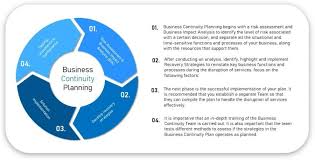How to Maximize Value When Selling Your Business: Preparation is Key

Understanding the Market Landscape
Researching Industry Trends
To get the best price for your business, you need to know what’s happening in your industry. Stay updated on the latest trends and changes. This will help you understand what buyers are looking for and how much they might be willing to pay.
Identifying Potential Buyers
Finding the right buyer is crucial. Make a list of potential buyers who might be interested in your business. These could be competitors, investors, or even customers. Knowing who might buy your business can help you tailor your sales pitch.
Analyzing Competitor Sales
Look at recent sales of similar businesses in your industry. This can give you an idea of what your business might be worth. Compare their strengths and weaknesses to your own business to see where you stand. This analysis can also help you identify areas for improvement before you sell.
Preparing Financial Statements
Organizing Financial Records
Before selling your business, it’s crucial to have all your financial records in order. This includes income statements, balance sheets, and cash flow statements. Having organized records makes your business more attractive to potential buyers. For example, in real estate marketing, a strong online presence can make a huge difference in attracting the right buyers and showcasing properties in the best light.
Highlighting Key Metrics
Identify and highlight key financial metrics that showcase your business’s performance. These might include revenue growth, profit margins, and return on investment (ROI). Presenting these metrics clearly can help buyers see the value in your business.
Ensuring Accuracy and Transparency
Accuracy and transparency in your financial statements are essential. Double-check all figures and ensure there are no discrepancies. Being transparent builds trust with potential buyers and can facilitate a smoother sale process.
Properly prepared financial statements can significantly enhance the perceived value of your business and streamline the selling process.
Enhancing Business Operations
Streamlining Processes
To make your business more attractive to buyers, start by streamlining your processes. Efficient operations can significantly boost your business’s value. Look for areas where you can cut down on waste and improve productivity. This might involve adopting new technologies or reorganizing your workflow.
Improving Profit Margins
Increasing your profit margins is another key step. Focus on reducing costs and increasing revenue. You can do this by negotiating better deals with suppliers, raising prices, or finding new revenue streams. Higher profit margins make your business more appealing to potential buyers.
Strengthening Management Team
A strong management team can add significant value to your business. Ensure that your team is skilled, experienced, and capable of running the business without you. This can give buyers confidence that the business will continue to thrive after the sale.
Enhancing your business operations not only makes your business more attractive to buyers but also can lead to better performance and higher profits in the meantime.
Valuing Your Business
Choosing a Valuation Method
When preparing to sell your business, picking the right way to value it is crucial. There are several methods to choose from, such as the income approach, the market approach, and the asset-based approach. Each method has its own pros and cons, so it’s important to understand which one fits your business best.
Considering Market Conditions
Market conditions can greatly affect the value of your business. It’s important to look at the current economic climate, industry trends, and the demand for businesses like yours. Selling your business during a strong market can lead to a higher sale price.
Seeking Professional Appraisals
When preparing to sell your business, getting a professional appraisal can provide an accurate value for your business. Appraisers use various methods and have the expertise to give you a fair estimate. This step can also make your business more attractive to potential buyers, as it shows that you have taken the time to understand its true worth.
A well-prepared valuation can be the difference between a successful sale and a missed opportunity.
Marketing Your Business Effectively
Creating a Compelling Sales Pitch
To attract buyers, you need a strong sales pitch. Highlight what makes your business unique and why it’s a great investment. Focus on your business’s strengths, such as a loyal customer base or a strong brand.
Utilizing Online Platforms
In today’s digital age, online platforms are essential for marketing your business. Use websites, social media, and online marketplaces to reach a wider audience. Make sure your online presence is professional and up-to-date.
Engaging with Business Brokers
Business brokers can help you find the right buyer. They have the experience and connections to market your business effectively. Consider hiring a broker to handle the sale, so you can focus on running your business.
Negotiating the Sale
Setting Clear Objectives
Before entering negotiations, it’s crucial to set clear objectives. Know your minimum acceptable price and the terms you are willing to negotiate. This will help you stay focused and avoid making hasty decisions.
Understanding Buyer Motivations
Understanding what drives the buyer can give you an edge. Are they looking for a quick investment, or are they interested in long-term growth? Knowing this can help you tailor your pitch and negotiate more effectively.
Navigating Legal Considerations
Legal aspects can be complex, so it’s important to have a good lawyer on your side. They can help you understand the legal implications of the sale and ensure that all agreements are in your best interest.
A well-negotiated deal can make the difference between a successful sale and a missed opportunity. Take your time and make sure all your bases are covered.
Closing the Deal
Finalizing Agreements
When it comes to finalizing agreements, it’s crucial to ensure that all terms are clearly defined and agreed upon by both parties. This includes the sale price, payment terms, and any contingencies. Make sure to review all documents carefully and consult with legal professionals to avoid any misunderstandings.
Managing Due Diligence
Due diligence is a critical step in the sale process. Buyers will want to thoroughly inspect your business to confirm its value and identify any potential risks. Be prepared to provide detailed information about your financials, operations, and legal matters. Transparency is key to building trust and facilitating a smooth transaction.
Ensuring a Smooth Transition
A smooth transition is essential for maintaining business continuity and ensuring the new owner can take over without issues. This may involve:
- Training the new owner and their team
- Introducing them to key clients and suppliers
- Providing ongoing support for a specified period
A well-planned transition can help preserve the business’s value and foster positive relationships with the new owner.
Frequently Asked Questions
Why is it important to understand the market before selling my business?
Knowing the market helps you set a fair price and find the right buyers. It also helps you understand what buyers are looking for.
What financial records should I organize before selling my business?
You should have up-to-date balance sheets, income statements, and cash flow statements. These documents show the health of your business.
How can I make my business more attractive to buyers?
You can streamline your processes, improve profit margins, and have a strong management team. These steps make your business more appealing.
What are some common ways to value a business?
Common methods include looking at your earnings, assets, and comparing with similar businesses. Sometimes, getting a professional appraisal is helpful.
How can I effectively market my business for sale?
Create a compelling sales pitch, use online platforms, and consider working with business brokers. These methods help you reach more potential buyers.
What should I keep in mind during the negotiation process?
Set clear goals, understand what the buyer wants, and be aware of legal issues. These steps help you navigate the negotiation smoothly.





